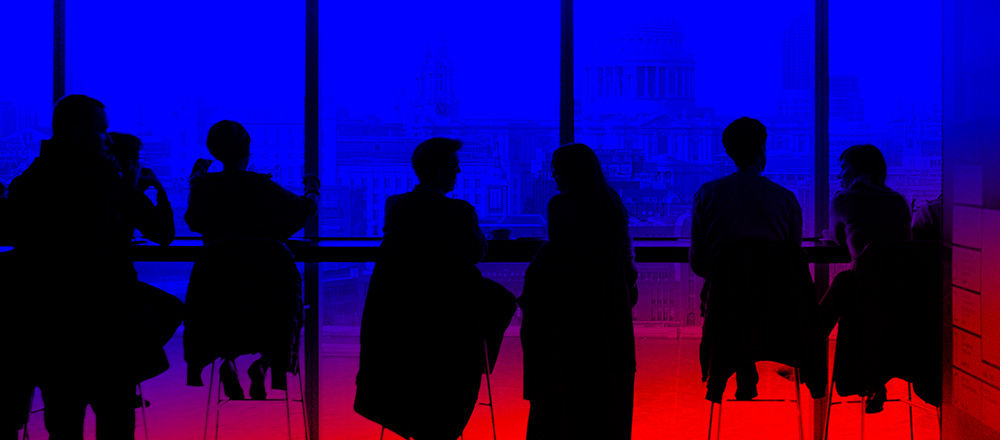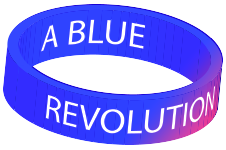
The Challenge of Islam and 21st-century consciousness
Islam’…….. what feelings does the word invoke? What feelings is the word intended to invoke? Well, that depends on who is saying ‘Islam’. In this brief paper by one of the founder six members of the group Blue Revolution, we are going to examine Islam from two perspectives and use as the basis for our examination the concept of consciousness which Blue Revolution believe is the best way of understanding the tensions which exist between those who embrace Islam hand those who don’t.
Islam originated in the tribal areas of the seventh century Arab Peninsular when Mohammed the Prophet of Islam received the ‘word of God’, revealed to him by the Angel Gabriel. Gabriel had made an appearance some six hundred years earlier when he foretold of the Birth of Jesus who it was claimed by Christians was the son of God. The role of Gabriel gives these religions what we call their ‘Divine Narrative’. Divine Narrative is ‘evidence’ that what we are told is not simply a reflection of the life of Jesus the man or the Quran are thoughts of Mohammed another man, but they are both related to God. It was common in the period of antiquity to use such grand claims to make people accept things they might otherwise choose to reject. Plato the Greek Philosopher used such a grand claim he called a ‘Noble Lie’ to justify the rule of philosopher Kings over the masses.
Islam has two core elements the Quran, the word of God revealed to Mohammed, and the Hadith. The Hadith is as important to most Muslims as the Quran, but the Hadith is a series of narrations by different people who claim to have known Mohammed. These narrations are not claimed to be related to God like the Quran.
So, in the Hadith, there are numerous references to Mohammed such as “I saw the prophet do this” or “I heard the prophet say that”. It is in the Hadith that one can read a lot about seventh-century tribal reality. How people had sex, what if any obligations one has to non-believers and how women are to be treated or indeed trained in the way of Islam. It is in the Hadith that stoning for adulterous behaviour is referenced. The punishment in the Quran for adultery is a modest one hundred lashes. However, It is fairly clear from both Quran and Hadith that adultery is to be punished with serious physical harm, that homosexuality is an abomination and that Islam is at constant war, a sort of holy tribal war, to vanquish all other cultures and impose on humanity the doctrines of.
Islam is monotheistic, there is only one God Allah. The doctrine which supports this belief is called Tawhid. Tawhid is the concept of one perfect God and also reflects within this belief the unity of human behaviour with the word of God if people obey the Quran. It is clear why this is a challenge. The Quran does not easily fit in with the expectations of 21st Century people. Tawhid reflects the unity of God and humanity, as long as you do as God or Mohammed says.
If one could achieve Tawhid, argue some Islamic scholars one would create a “Heaven on Earth”, the perfect community an Islamic community. This desire to achieve unity between God and humanity via religious observance is what influences the consciousness of ISIS and other Islamist groups. The belief that applying Quranic law and Mohammed’s examples of social behaviour described in the Hadith leads to Heaven on Earth. The problem is, this Heaven on Earth requires women to accept God-given deficiency in ‘faith and intellect’ and Homosexuals to accept being killed as punishment for their ‘sin’. The overarching problem is therefore that everyone must submit to the same ‘idea’ of ‘The Word of God’ and interpretations of the numerous Hadith. A big ask even in Islam as no single doctrine exists in Islam which is accepted by all Muslims.
Therefore the descriptions of the seventh century captured in the Quran and Hadith become the basis for disagreement among scholars and of course any male can revert to the argument that the Quran must be taken literally if confronted with revisionism or ‘liberal interpretations’. After all the Quran is Gods word.
So far nothing remotely controversial has been said. Many Muslims would agree with some or all of what has been referred to above. Maybe some might challenge us on Gabriel’s first-century assertion that Jesus was the Son of God (rather than just another prophet) who preceded Mohammed.
The main challenge for Islamic Scholars is to persuade us in the 21st-century that the vision of social and economic perfection based on the Quran and Hadith, can improve human existence. They also need to explain why women should accept as a sex their deficiency. or Homosexuals should accept being punished in the name of God.
Islam is only perfect in theory. No one has ever made Islam perfect in reality. Notwithstanding this, Islam is the perfect ideology with which to attack others for being ‘different’ and therefore ungodly. It is hard to imagine gaining many followers if Islam’s expectations about human behaviour are so unrepresentative of people and their more enlightened expectations even in 21st-century Islamic countries.
Having highlighted some uncontroversial observations about Islam which many Muslims would accept, it is time to consider why Islam escapes serious scrutiny, when it is clear that scrutiny is simply asking Islamic scholars to explain Islamic doctrine and justify Islamic law in the context of the enlightened 21st-century. The problem really is not about Islam but about a form of inverted racism practised by a misguided liberal establishment that prevents proper scrutiny of Islam and it’s doctrines. We call this bourgeois racism. It is the racism of the well-intended but anxious elite.
Islam as we have said has some uncompromising attitudes which are clearly out of step with modern progressive values. The problem for the elite however is that they have a superficial understanding of Islam which is shaped by how Islam is presented to non-believers by the Islamic community. It is also influenced by fear of racism.
Starting with ignorance. The liberal mind has become shaped by concepts like moral relativity. ‘Relativity’ is fine when one is doing one’s schoolwork on Islam and one compares church with Mosque or Zakat with Charity or maybe, look at rituals like fasting in Lent and fasting at Ramadan. So, the idea in the consciousness of the modern liberal is that Islam is like other religions, it has its ‘divine narrative’, which they would reject as fanciful nonsense, as they do with Christianity. But, and it is a big but, to the liberal, Islam is exclusively practised by people with a darker skin colour so to criticise Islam is like racism and against the liberal ideology of being ‘welcoming’ and ‘inclusive’.
This conflation of religion and skin colour has become so established that Islamicists have taken to associating criticism of Islam with a ‘kind of racism’. The upshot of this confusion about Islamic ideas and the association of Islam with race is that there is perceived by the BBC or other liberal organisations to be no problem with Islam. Any ‘problem’ is not a problem at all, its racism.
The consciousness of the traditional Muslim whilst at odds with much western thinking should in the 21st-century be open to robust challenge. But it is not! Many are happy to believe in the Quran and Hadith and see in Islam a God-ordained antidote to western secularism. Any difficulty secularists and non-believers face challenging Islam are therefore caused by an ignorant, patronising smug bourgeois elite treating Muslims as potential victims of ‘racial’ abuse, if anyone says anything bad about their faith of Islam.
So, what is the answer? Well in classical Marxist terms religion reflects various stages in the development of human consciousness. The consciousness associated with twenty-first-century western enlightenment cannot be passed over as an irrelevance whilst one fetishizes belief systems and codes of morality based on first or seventh-century ideas. To do so is dangerous. Dangerous because its too easy to slide back to where you have been rather than progress to an uncertain and maybe more equal, less faith-based and therefore less elitist future. Open and respectful dialogue with people who stand up for their belief system whatever it is is essential. As is an end to seeing Islam race-based. Islam is no more raced based than say socialism. Ideas are not racial but people are.
